The reception area at the Diageo headquarter in Singapore clearly belongs in a boutique hotel. The reception desk is a tall escritoire that hides nothing; you can see its legs as well as those of anyone standing behind it. It faces a long cocktail table on the other side of the room in perfect symmetry as they both ‘float’ on a checkerboard floor. On the wall behind the reception desk is a neon sign that reads “Celebrating Life Every Day Everywhere”—in case the Diageo goal is not clear to anyone who saunters in—and on the opposite wall are bottles of Diageo liquors massed in specially lit recessed shelves.
In front of the reception desk are two tablets where visitors can leave their particulars in exchange for a pass that will allow them inside – although there really is no barrier, just a pair of permanently parted heavy drapes indicating the passage to what is beyond.
This foyer is the threshold.
Standing behind the desk is a young woman who cheerily greets visitors as she receives deliveries from messengers, gliding from the desk to nudge a frozen keyboard back to life, and then to the table opposite to sign a delivery slip.
As far as modern hubs of efficiency and productivity go, Diageo’s office is up there with the best of them. As APAC headquarter, it houses 174 employees in flexible spaces that total 17,000 square feet. Although not in the whimsical Pee-wee Herman style of cheery colors and toy-like furniture, it has a sense of fun all its own.
Past the entrance, on the right, are the offices where the staff in ‘stylish casual’ work around hot desks. Modern office touches are everywhere: Pods for making private calls, couches where staff can put feet up as they work, walls printed with corporate messages, lockers for everyone to keep their personal belongings. Further in is a quieter workspace – ‘the Study’ – for more focused deskwork and small breakout meetings, and still beyond are workstations arrayed like in a conventional office.
Outside the office, in the hall right at the heart of the space, armchairs and settees are grouped around coffee-tables. Along the side where the windows are is a row of meeting rooms, and opposite is a pantry with high communal tables and alcoves. The staff take turns using these for small meetings, to brainstorm or work singly on their laptops, to meet guests, and perhaps to decompress.
At the far end of the hall to the left is The Bar at Diageo, a large space fitted with a well-stocked, commercial-grade bar where professional barmen serve drinks to staff and their guests on some nights during the week. “Some employees invite their family and friends over, and they order chicken wings to be delivered here. The drinks are on the house,” someone whispers to me. A space beyond the bar converts into an entertainment area where mixers and talks have been held, but during the day, with the curtains drawn around it, functions as yet another place for work.
Finally, hard by the bar is The House of Johnnie Walker, access strictly by invitation, where the rarest and most precious whiskies in the Diageo portfolio are kept and enjoyed by very special clients and very few lucky guests. It is sometimes referred to as ‘the million-dollar room’ for the price of the whiskies stored in it easily comes close to that figure.
- WOMAN AT THE FRONTIER
- A WORLD OF POSSIBILITIES
- CALIBRATING THE FIT
- MAINTAINING THE LEADERSHIP
Woman at the Frontier
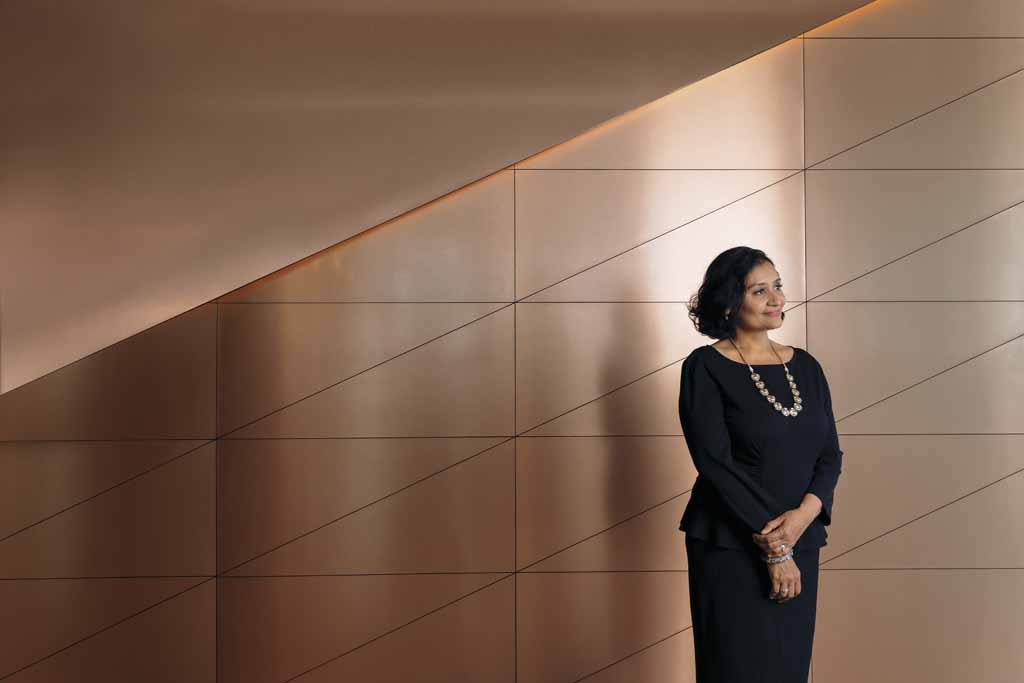
I’m here to meet Ms. Apurvi Sheth, Diageo’s managing director for Southeast Asia, who leads the company’s business across the region as well as in Sri Lanka and other emerging markets.
Her current role is a culmination of sorts that emerged from 23 years in leadership positions at Nestle, Coca-Cola and Pepsico. Even at Diageo, which she joined 2007 as innovation director for Southeast Asia and India, Ms. Sheth has shown her métier in various posts, including innovation general manager for Asia Pacific in 2010, and managing director for Southeast Asia emerging markets and joint ventures in 2014 –a newly created role that she singlehandedly defined.
If there is a running theme here, one need not look farther than the titles she has held. A champion of business transformation to drive growth, she tells me casually, “innovation and new frontiers have always been part of my expertise.”
In person, Ms. Sheth appears simple. Her immaculate face provides no clue to her age, her designer clothes extravagantly plain. She weighs her words carefully but at the same time she is full of candor and energy. She likes to use the inclusive ‘we’, and credit any success to ‘the team’. Inside the Johnnie Walker House, she calls on members of her team to see to everyone – to answer questions, to conduct an impromptu tasting, to explain how things work. Everyone plays an important role. But it’s clear to see who is calling the shots.
When Diageo acquired a Chinese white spirit, the baijiu brand Shui Jing Fang, they got Ms. Sheth on board to create the awareness campaign. “It was white space both for me and for Diageo,” she remembers, “it was daunting but it was also very exciting because of the tremendous possibilities.” Ms. Sheth admits she had “no prior experience in alcohol, but I have the ability to flourish in ambiguity, to thrive in the face of challenges.” Her plan successfully launched Shui Jing Fang to new prominence, and although premium baijius went through interesting times when China imposed austerity measures, it is clearly a well-established and very promising category for Diageo today.
Ms. Sheth would eventually build innovation legacies in other categories including Scotch whiskies with Diageo and non-carbonated drinks with Pepsico, but her most recent moves to set up Diageo’s first private client team, and establish The House of Johnnie Walker showed her dexterity and skills to be of another caliber. The woman’s got game. When I quizzed her about the source of her energies and ideas, she simply gave me a two-word answer: Creating possibilities.
“My life purpose is to create possibilities for growth,” Ms. Sheth says emphatically, “not only for myself and the company but also for those around me.” ‘Creating possibilities’ would come up several times in our conversation, along with ‘life purpose’, an idea that she claims to have picked up at the Diageo Leadership Performance Program, which she attended and became a part of.
“No one had asked me what my life purpose was before then. When you go to a job interview, you often get asked what your career goals are—but they are not the same. A life purpose is much bigger,” she elaborates. “Your life purpose is your core. Very often, you lose sight of your life purpose; you learn to compare yourself with others, and you aspire to become somebody you are not. But your life purpose is not what you do or where you are – it is who you are.”
Ms. Sheth says that one’s life purpose is often already there, although it may not be manifest. By constantly going back to what one thinks is important, how one personally operates, one realizes it.
- WOMAN AT THE FRONTIER
- A WORLD OF POSSIBILITIES
- CALIBRATING THE FIT
- MAINTAINING THE LEADERSHIP
A World of Possibilities
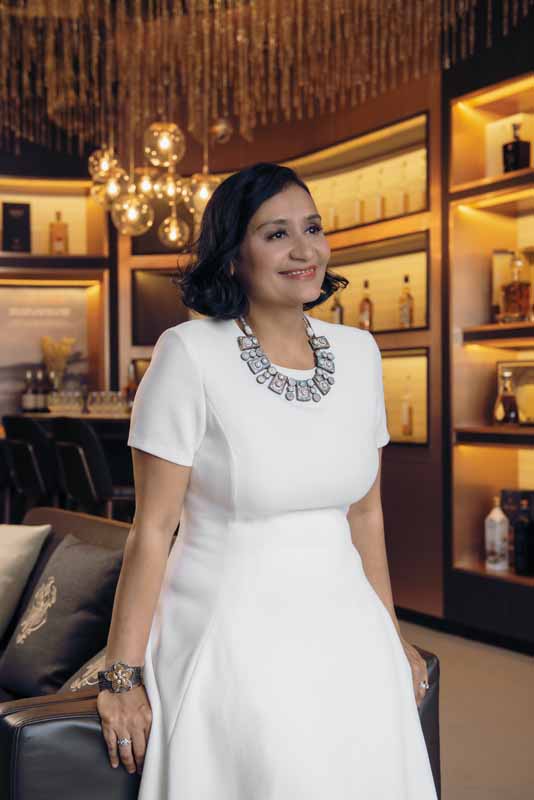
“I think there’s more restlessness now,” Ms. Sheth describes the pace in which they operate currently. “Consumers are moving faster, so the restlessness right now is about moving with agility.”
But how does one teach a behemoth to dance? Doesn’t size – being large, being big – pose an impediment to agility?
Ms. Sheth concedes that moving too fast can make one lose sight on certain things. “That’s why we insist on learning as we go. When we move fast there are times we may unwittingly make compromises on key components.”
On the other hand, she advocates celebrating the process as much as one celebrates “the experimentation, the creativity, and the flair for creating” to find the right balance. “Sometimes we get it wrong, but increasingly we’re putting in more process to balance that.”
Some mistakes that have been committed in the past were huge, Ms. Sheth admits. “It has happened; some of our global innovations have failed, and we acknowledge that. We got this wrong, so what are the learnings from this? We can’t do this every time; we can’t make the same mistakes.
“We are always learning from our consumers who prove to be our deepest source of insight on the occasion we make mistakes. We learn as a team and we enjoy the journey. We don’t have a ‘blaming culture’ here. That one can be even more harmful because it pulls back people from taking risks, from engaging in experimentation and moving ahead with creativity. For us, it’s ‘Go out and do it’.”
She repeats her familiar lines: “You will make mistakes and that is fine. Learn from them so you don’t make them again. Meanwhile, respect the learning, respect the process because that is the foundation that you build up from.”
- WOMAN AT THE FRONTIER
- A WORLD OF POSSIBILITIES
- CALIBRATING THE FIT
- MAINTAINING THE LEADERSHIP
Calibrating the Fit
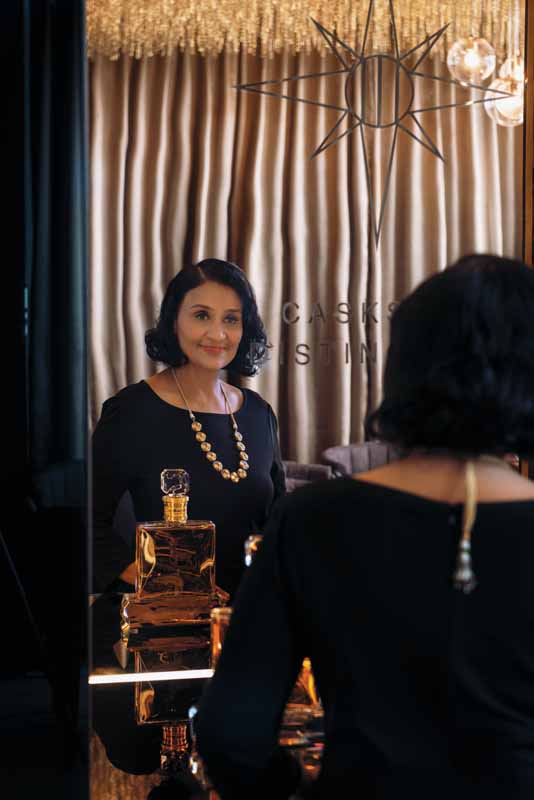
What type of talent fits into the culture that allows mistakes while expecting results? “Our team is diverse,” offers Mr. Leslie Chong, corporate relations director for Southeast Asia, who joins us for an after-hours drink at the Johnnie Walker House. (Both he and Ms. Sheth drank water while I sipped a Tanqueray G&T.) “Diversity provides the best access to a rich pool of talents,” he points out, emphasizing how it offers the multiplicity of ideas and points of view. “In an industry that is intensely client-facing as ours, having diversity means having access to a broad range of thinking about clients.”
Around us in the Johnnie Walker House examples of successful experiments are highlighted. A cabinet built into a wall displays a collection of rare whiskies from active and silent distilleries owned by Diageo. One bottle is beautifully engraved by the official artisan of Her Majesty the Queen of England, another sits in a presentation box in the form of a book, yet another is specially blended for the Asian palate. These bottles have been sitting on the Diageo shelf, but Ms. Sheth, with her deep understanding of the narratives that make their most loved brands, has brought to life stories behind the liquid’s craftsmanship to share with discerning consumers.
Diageo’s revenue comes from sales of alcoholic beverages, and Ms. Sheth has developed highly innovative ways to do it. One is through the sale of the content of entire casks through the Diageo Casks of Distinction program. Seeing how these sought-after, finite-stock and rare whiskies do exceedingly well at auctions, she assembled a highly knowledgeable team to service private clients who may want to purchase casks for private consumption or to build up their collections. Her team presents clients with immersive and bespoke experiences at an unprecedented level of customization such as through the John Walker & Sons Signature Blend, and also offers invited guests advice on whisky cellar curation, and direct access to Diageo’s blending rooms, distilleries and craftsmen. This is made possible as Diageo owns a diverse portfolio of 50 distilleries that can cater to consumers of all taste profiles, and ensures that they have the wide variety to help whisky enthusiasts build their cellars or private collections.
- WOMAN AT THE FRONTIER
- A WORLD OF POSSIBILITIES
- CALIBRATING THE FIT
- MAINTAINING THE LEADERSHIP
Maintaining the Leadership
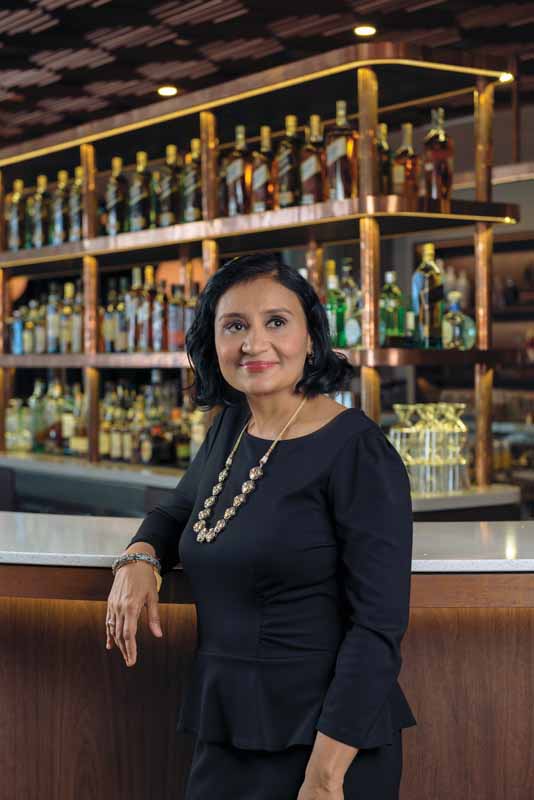
There’s absolutely no reason to think that British company Diageo is just knee-deep in a pond of back-pats and encouragement expressed in abstract nouns. It has a keen eye on the numbers. The public limited company is a business behemoth, listed on both the London and New York stock exchanges, operates in over 80 countries, and sells its range of alcoholic beverages in over 180 markets. Its brands include Johnnie Walker, Smirnoff, Tanqueray, and Guinness; it owns 37 per cent of Moet Hennessy, and is just behind China’s Kweichow Moutai as the world’s largest distiller of spirits.
Its growth ambition is well-established: “Globally we improved to grow five per cent in organic net sales in 2018,” Ms. Sheth shares, adding that for a market leader and for this category, that’s a fine figure. “We’re not just in a handful of categories,” she clarifies, “we’re the leader in many categories, from whiskies, to liqueur, stout and vodka.”
That feeling of restlessness on the back of a rapidly developing market that Ms. Sheth mentions is backed by macro factors. Throughout Southeast Asia alone, 7 million aspirers are reaching legal drinking age each year, adding to an already robust base. “They may have reached the legal age (for alcohol consumption), or may be looking for a new experience, and are finally able to afford some lifestyle choices – they are here and they are evolving. We want to give them quality products and brands, and the best experience.”
Styling by Jerome Awasthi, assisted by Nadiah Rashid, Hair & Make Up by Jace Ang
Photographed on location at Diageo Singapore





-ADiN.jpg&w=347&h=240&crop-to-fit)




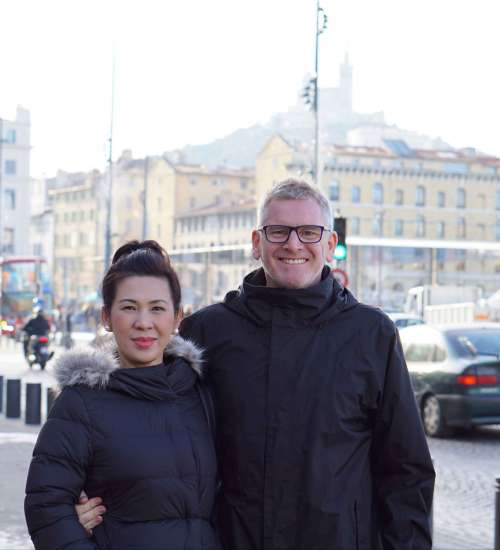



 Back
Back
